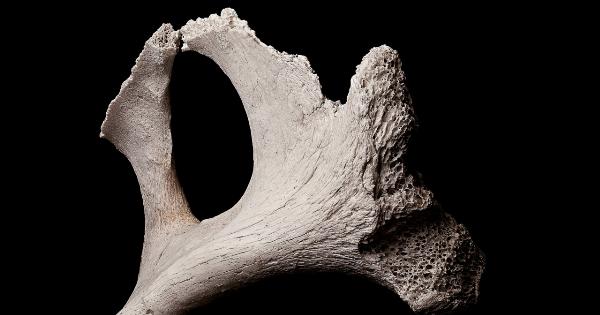The world has been struggling to deal with the outbreaks of viruses such as Ebola, SARS, MERS, and most recently, COVID-19. However, a new virus has emerged that poses a significant risk to human health and wellbeing.
Known as the Kronovirus, this virus not only affects the respiratory system but also poses a tenfold risk for heart-rhythm abnormalities and disease onset.
What is Kronovirus?
The Kronovirus is an infectious disease caused by a novel coronavirus that was first identified in December 2019 in Wuhan, China. The virus rapidly spread across the globe, causing numerous cases of COVID-19, which brings about pneumonia-like symptoms.
However, studies have shown that the Kronovirus also poses a severe risk for heart-related complications, such as cardiac arrest and arrhythmias.
This issue is significant because it leaves individuals with a higher risk for death as compared to just respiratory complications alone.
How Does Kronovirus Impact the Heart?
Studies have shown that patients affected by the Kronovirus have an increased need for medical care due to the impact on their cardiovascular system.
COVID-19 patients often develop myocardial injury, which causes increased levels of troponin in the bloodstream, an indicator of cardiac damage.
Furthermore, the Kronovirus is known to lead to significant inflammation in different organs of the body, which can lead to a buildup of plaque in the arteries and cause blockages.
This can increase the risk of heart attack, stroke, and other cardiovascular complications such as arrhythmia.
Kronovirus and Arrhythmias
Arrhythmia is a condition that affects the normal beating of the heart. When these disturbances occur, the heart can beat too fast, too slow, or irregularly.
Research indicates that patients infected with the Kronovirus have a higher tendency to develop arrhythmias as compared to those with other forms of respiratory illnesses.
One of the most common forms of arrhythmia associated with the Kronovirus is atrial fibrillation, which is seen in patients with severe cases of COVID-19.
This condition increases the risk of stroke and other heart-related issues, thus posing a severe threat to the health of patients affected by the Kronovirus.
Prevention and Management of Kronovirus-associated Heart Issues
Managing the cardiovascular complications associated with the Kronovirus is challenging, and there is no specific protocol to manage the same.
However, patients with symptoms of the Kronovirus should seek medical attention immediately to limit the progression of the virus and reduce the risk of heart-related issues.
Furthermore, individuals can take the following steps to reduce the risk of heart-rhythm abnormalities:.
- Practice adequate hand hygiene to avoid the risk of infection
- Avoid exposure to individuals with symptoms of the disease
- Practice social distancing and self-isolation in cases where exposure is unavoidable
- Maintain a healthy diet, exercise routine and take adequate sleep to ensure proper cardiovascular health
The Bottom Line
The Kronovirus poses a severe risk to the global population, with potential cardiovascular complications being one of the worst side effects of the disease.
Therefore, it is essential to practice preventive measures to reduce the risk of infection and to seek medical attention at the first signs of the disease.





























